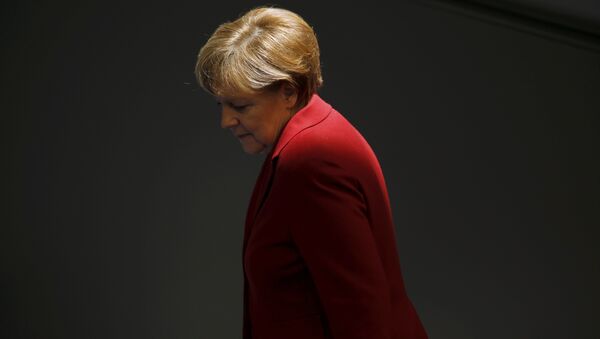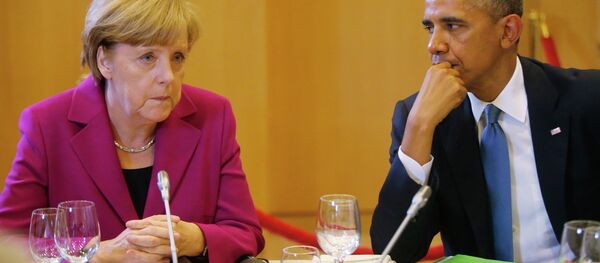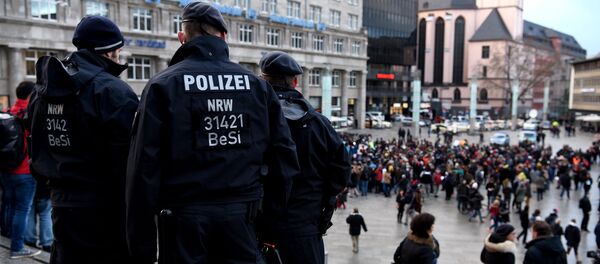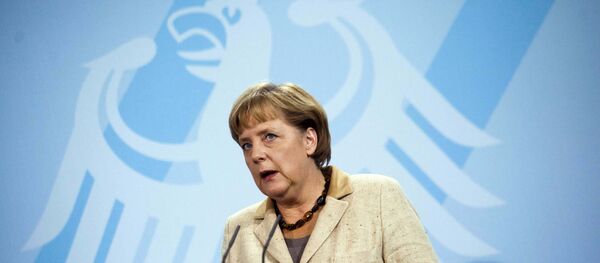It has been a really hard year for Chancellor Angela Merkel: her approval ratings have plummeted while the number of fellow politicians in the European People's Party (EPP) she could consider her ideological partners has diminished tremendously.
Simultaneously, Germany's image as the longstanding flagship of the European Union has been called into question.
"Germany's sway over Europe is fading, for all its economic might and the honors heaped on Angela Merkel, and the evidence of its declining influence can be seen in the changing fortunes of the European People's Party (EPP)," managing editor of Politico.eu Florian Eder noted in his recent article.
To complicate matters further, new alliances are arising within the union, throwing into question Berlin's leadership.
"The influx of refugees has consolidated the Visegrad Group, bringing together the national-conservatives of Poland, Slovakian leftist Robert Fico, Czech Social Democrat Bohuslav Sobotka and [Hungarian President Viktor] Orban," Eder points out, adding that the Hungarian President and his allies denounce the policy towards migrants espoused by Merkel and European Commission President Jean-Claude Juncker.
The journalist points out that Angela Merkel, while "unchallenged as Europe's unofficial leader", suffers from a lack of serious high-level counterparts. "François Hollande is unpopular, [Spain's PM Mariano] Rajoy may have lost his job already and David Cameron has his own agenda when it comes to the EU and migrants," Eder explains.
Commenting on the Chancellor's initiative to organize the relocation of refugees across the EU, Dobrindt noted: "Who speaks of a coalition of the willing to manage this crisis must also name the reality… On this issue there is a pact of the unwilling against us."
Meanwhile, Merkel's popularity in Germany has declined considerably. The Chancellor has long been celebrated as a "top" EU politician, who was named "Person of the Year" by the Times of London in 2014 and by America's Time magazine in 2015. However, many people turn a blind eye to the fact that domestically, things have been getting more and more difficult, Christoph Strack of Deutsche Welle wrote in a recent op-ed.
"Germany is boiling. Much of the German media is boiling. More than a million refugees in the country and more and more problems, some predictable, some surprising and disturbing," he notes.
The journalist refers to the fact that the country's mass media are expressing opinions "with a new dimension of harshness."
Guten Morgen! Schafft Kanzlerin Merkel ihre größte Krise? https://t.co/Ol9BO6BCXo pic.twitter.com/fWltB9PSCp
— BILD (@BILD) 17 января 2016
"Is Merkel still the right one?" the popular German daily Bild am Sonntag asks, stating that at the root of the current political crisis that has stained the chancellor's administration, one finds "lack of respect, loss of authority, internal political struggle, terrorism, criminality and overstrained authorities."
"This year will not only determine the future of Merkel's chancellorship — it will also affect the way that chancellorship is viewed as a whole," the journalist underscores.
The question remains open whether Merkel's potential political failure will ultimately undermine Germany's leadership position in the EU and deal a blow to the bloc's unity.






